News & Media
Advocating for meaningful liberation that must manifest in democracy
In partnership with the Human Resources Development Institute, Unisa launched the Inaugural Seminar on State Capture on 10 November 2022 themed The State (capture) in world politics: her/histories, challenges and prospects. The phenomenon of state capture is one of the burning issues dominating South Africa’s (SA’s) national discourse, and it is against this background that the seminar contextualised the concept, its impact on, among others, governance, and proposed measures to curb and prevent its possible reoccurrence in the future.
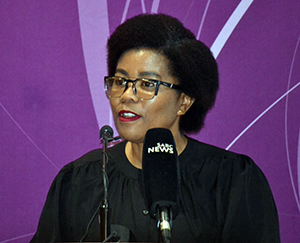
Prof Puleng LenkaBula
In her welcoming address, Unisa’s Principal and Vice-Chancellor (VC), Prof Puleng LenkaBula, stated that Unisa has been in the process of becoming and reimagining itself. She explained: "Among others, the process of becoming means Unisa has been contributing to institutional building, societal building, economic transformation, and the imagination of the place of knowledge." She added: "The university has been demonstrating the building of resilience and excellence in SA, the African continent and globally." The VC affirmed that Unisa is one of the Pan-African institutions whose researchers, academic scholars and students ensure that the study of institutional building and societal building are at the centre.
The VC reiterated the importance of understanding the concept of state capture, and maintained that a strong, capable and ethical state ensures the fair allocation of societal resources, and must always have the interests of the people at heart. Highlighting the impact of corruption, she maintained that it is not yet uhuru, and working together would ensure that liberation is meaningful and manifests in democracy.
Contextualising state capture
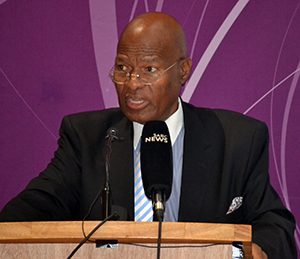
Dr Thozamile Botha
Keynote speaker Dr Thozamile Botha, a renowned political activist and independent scholar, addressed the complex issue of state capture in the context of, among others, the Eastern European states’ experiences following the collapse of the Union of Soviet Socialist Republics during the transition from the last President of the Soviet Union, Mikhail Gorbachev, and the experience in the United Kingdom during the leadership of former Prime Minister Boris Johnson. Botha stated that it is important for SA to draw lessons from these states’ experiences.
He also examined state capture within the SA context, focusing on how the black ruling elite has colluded with corrupt white business people to divert state resources away from poor communities. Botha explained: "If captors infiltrate state organs such as Treasury, power supply, the transport system, and security organs, this would have debilitating effects on the state’s effective functioning."
Botha maintained that the strategy of the captors is to target states in transition, taking advantage of the fragility of government institutions and job insecurity in the public sector. He remarked: "Instability at governance level presents an opportunity to loot, and the credibility of those who run the state sinks." He acknowledged that not all public servants and politicians are corrupt. "However," said Botha, "if the situation is unstable, uncertainties are created."
Intense insights of discussants
During the panel discussion, Prof Dorothy Farisani of Unisa’s College of Law said SA’s state entities remain vulnerable due to governance loopholes that require urgent attention, as communities bear the brunt of state capture. According to Prof Dirk Kotzé of Unisa’s College of Human Sciences, while economic transition can create room for state capture, the political agenda is another form of state capture occurring when state institutions are captured to weaken political oppositions.

The panellists (from left): Prof Dorothy Farisani, Khaya Sithole, Prof Dirk Kotzé, Prof Tina Uys and Dr Benni Lekubu
Speaking from a media perspective, political analyst Khaya Sithole stated that the media plays an important role in how the state is understood and in facilitating interaction between the state and the public. Prof Tina Uys of the University of Johannesburg’s Department of Sociology said corruption is not a new phenomenon in SA and that in the case of whistle-blowers, the focus should not be on the messenger as that could lead to victimisation, but on the message being reported. Anti-corruption expert Dr Benni Lekubu of Unisa’s College of Law spoke against state capture and institutional capture, highlighting that it happens when undeserving and unqualified people are employed to serve the interests of specific people, and not prioritising the interests of the organisation or society.
The VC, keynote speaker and panellists responded to comments and questions around, among others, lack of consequences for corruption perpetrators, distinguishing between looting and state capture, state capture existing in the presence of political capture, and how Unisa disseminates knowledge around political issues such as state capture.
Reflecting on the presentations and proposing a way forward, Prof Fundiswa Kobo of Unisa’s College of Human Sciences said the presentations debunked the misperception that governance problems and state capture originate from the black-led government, while, on the contrary, the apartheid government had its share of state capture issues. She encouraged, among others, enhanced partnerships, research projects and engaged scholarship in a quest for liberation and the state that is ethical.
In closing, Prof Sibusiso Vil-Nkomo, Executive Dean of Unisa’s Thabo Mbeki African School of Public and International Affairs, expressed his appreciation of the high calibre of all speakers and attendees, and applauded the VC for promoting scholarship.
* By Nancy Legodi, Acting Journalist, Department of Institutional Advancement
Publish date: 2022-11-11 00:00:00.0

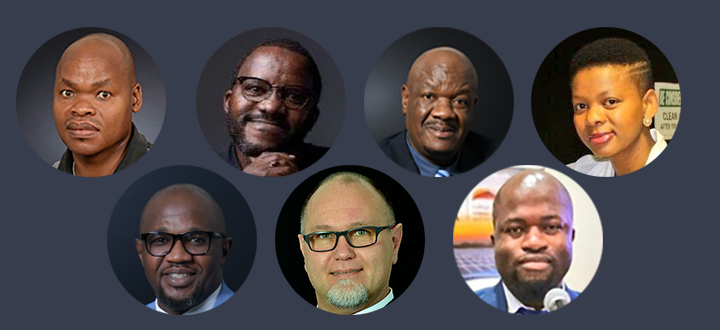 Seven Unisans nominated for the NSTF-South32 Awards 2023/2024
Seven Unisans nominated for the NSTF-South32 Awards 2023/2024
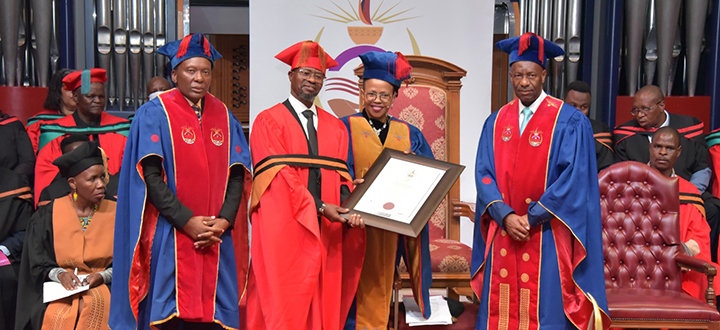 Unisa awards posthumous honorary doctorate to literary maven, OK Matsepe
Unisa awards posthumous honorary doctorate to literary maven, OK Matsepe
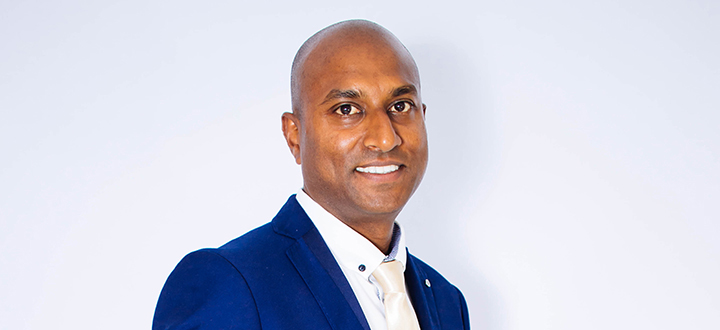 From humble beginnings to academic leadership
From humble beginnings to academic leadership
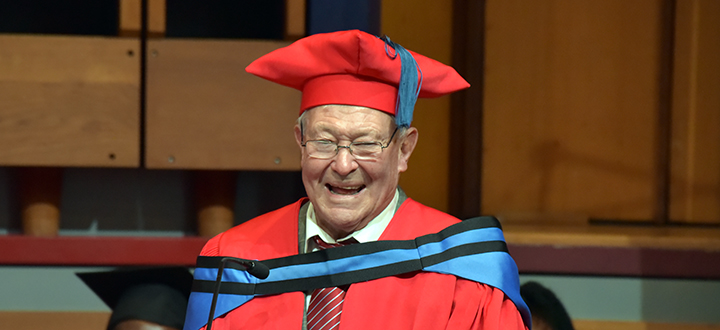 Community champion and agricultural entrepreneur extraordinaire honoured by Unisa
Community champion and agricultural entrepreneur extraordinaire honoured by Unisa
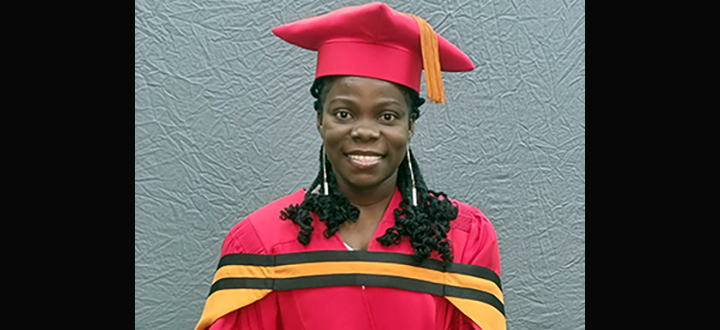 Ghanaian-born Swede earns PhD in Information Sciences from Unisa
Ghanaian-born Swede earns PhD in Information Sciences from Unisa